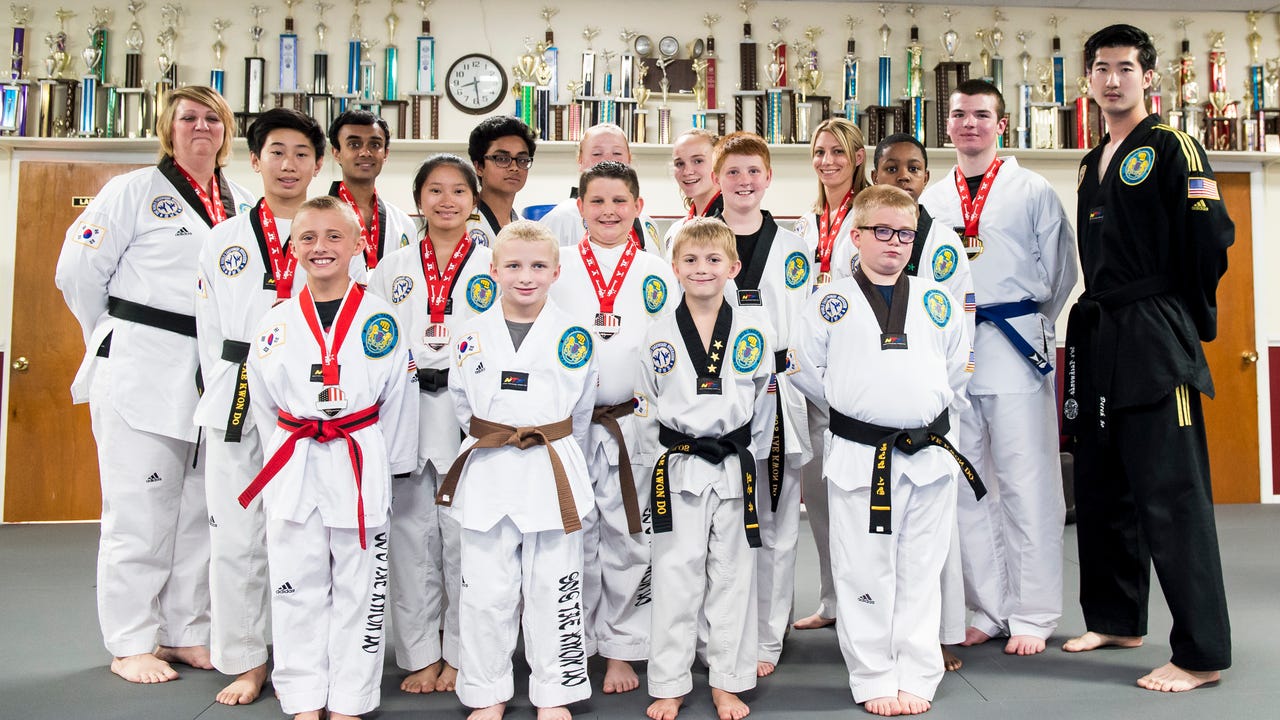So's Taekwondo students collect hardware on national stage

Derek So admits he used to be selfish.
The owner and head instructor of So's Taekwondo in Hanover has won numerous medals in taekwondo at statewide and national tournaments in his career. Achieving those feats used to be the 23-year-old's main objective.
But not anymore.
Now, So takes more pride in watching the students on his competition team win medals. And that's something he did a lot earlier this month.
Competing at the USA National Championships in Detroit over Independence Day weekend, So's Taekwondo finished with a combined 12 medals from its 16 competitors. To win a medal, an individual has to make it into the top three in their event's division, which is based off of age, belt level and weight.
"I'm more happy when these guys medal than when I medal," said So, who has run his family's business with his grandmother the past six years. "I never thought it would be like that. But now that I have students standing on the podium it makes me forget about my own training."
More: Setbacks don't stop martial artist from black belt
More: 74 years young and still lifting weights
The national tournament is the largest martial arts competition in the world, with more than 3,500 participants. So how does a small school in Hanover thrive there?
The success didn't happen overnight. So's competition team — which has students ranging from age 7 to early 40s — first competed at nationals three years ago and didn't win any medals. In order to get better, the students had to face top competition on a regular basis.
That wasn't happening in southcentral Pennsylvania. There aren't many taekwondo schools in the area, meaning So had to take his students to Maryland and occasionally Virginia to practice against top teams in those states.
"Iron sharpens iron," So said. "The best way to get better at taekwondo is to find a partner who’s better than you and practice with them. So we go to other schools and do cross training where we do a joint session together."
So and his students said that those sessions, along with other statewide competitions, has helped the team improve immensely. Still, practicing against other teams wouldn't do much if the students weren't extremely dedicated.
Like any sport, taekwondo takes hours of practice over multiple years to master. So said the majority of his students train for two hours a day three to four times a week, while others come to the school six days a week.
Many of the students said they signed up for taekwondo just looking for a hobby, but soon found a new passion.
"I thought I'd never do this or get this far," said Tamour Bari, a 19-year-old black belt who medaled at nationals in board breaking. "Once I slowly got the hang of it, day after day, I thought maybe I have a knack for this."
Added 10-year-old sparring medalist Austin Langkam: "I was just looking for something that was better than sitting at home. Mr. Derek really helped me and since I'm here so much I like practicing a lot."
Jennifer Jacobson signed her then 6-year-old son Liam up for classes six years ago. About a month later, she decided to try taekwondo with him. Now, she's one of the school's instructors and both she and Liam competed at nationals.
Then there's Jacobson's 15-year-old daughter, Elizabeth, who has trained for four years and earned the team's top accomplishment at nationals. Competing in the World Class Junior division, Elizabeth Jacobson earned a silver medal in sparring and made the USA Taekwondo National Junior B Team as a result. She'll be an alternate for the junior national team when it travels to Costa Rica for the Pan American Championships next month.
While she's proud of Elizabeth's accomplishment, Jennifer Jacobson said she's happier with how taekwondo has shaped the rest of her daughter's life.
"I think it's made her a whole different person," Jacobson said. "Her confidence has just gone through the roof. I just get goosebumps."
Added Elizabeth Jacobson: "If you just come and you don't really want to be here and you don't work for it, then you're not going to get as far as you want to. I feel more comfortable here than I did with (other sports)."
So has worked hard to create an environment where students work hard but also want to come back. That means treating each student as an individual and figuring out what type of coaching they respond to.
"Some people you go hard on and do the heavy motivation like a drill sergeant, and it clicks with them," So said. "Others, if you do that they shut down. So you have to be supportive in a more sensitive type of way."
So inherited the business from his late grandfather, Chong C. So, who graduated over 500 black belts during his career. Derek So knows he has a lot to live up to, which is why he and his team are still setting goals.
The next step is to have a competitor make the USA Taekwondo National A Team and represent the country in international competition. To do that, an individual has to win a gold medal in the World Class division at nationals.
"We're going to hit the ground running," So said. "We're in our own area where there aren't any schools around to help us train, so we've got to work harder than everyone else."